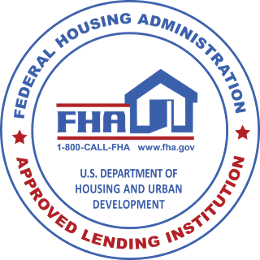A good neighborhood often means different things to different people.
While everyone has their own preferences and priorities when it comes to neighborhood characteristics, taking stock of what is most important to you and sorting the “must-haves” from the “good to haves” is a good first step when it comes to house hunting and assessing neighborhoods.
To help you with this, here are some of the factors that many people evaluate when considering what neighborhood to live in.
Consider the Location
Houses that have water views or views of a nearby park often command a higher price than those that don’t. Similarly, houses that are in an area with a lot of commercial property, that are near noisy streets or highways, or that are on streets with congested parking situations are often less desirable.
While being vigilant and aware of the surroundings when looking for your house helps, you should also do some research and ask questions. Talk to people in the area as well as your realtor and read the local papers. Find out if there are development plans for the area. If new hospitals, public transportation, or schools are going to be built, that could increase future property values. At the same time, finding that they are going to be built right next door to your house could decrease your future property value.
Choosing the Right Neighborhood
In most American cities, the experience you get living in one neighborhood might be significantly different than that of a nearby neighborhood. Think Malibu vs East Hollywood in LA. Two completely different vibes, houses with different appearances. One has considerably more open space, quality landscaping, more trees, and parks.
When deciding between neighborhoods here are eight things to consider:
- Amenities – These can be a huge benefit to your quality of life, but it is not always a make-or-break item. You may often find yourself asking: Is there a grocery store or pharmacy nearby? How about restaurants? Does it have the kind you like? If you are a dog lover, as many people are, are their dog parks, or even a dog bar, nearby?
- School District – This is often a big consideration for families with children. You want to make sure your child has the best chance to succeed in life and making sure they get a good education sets them down that path. A lot of factors can go into assessing a school district. You want to find a school that fosters an environment that is conducive to learning and that blends in an extracurricular activity you feel your child might be interested in.
- Appearance – Does the neighborhood have an urban or suburban feel or is it somewhere in between? Things such as zoning regulations can play into this. Find out if the neighborhood is zoned for commercial, residential, or both. This could affect the density of living conditions and your proximity to commercial establishments. Also, find out what the minimum lot size is. Large lot sizes usually mean more trees and shrubbery. Very large lot sizes might mean that it might not be a very walkable neighborhood, even if it does have sidewalks.
- Accessibility – Houses that are near public transportation or public roadways tend to be more attractive to people who have to commute to work or do a lot of traveling. For these people, proximity to their work would also be a consideration (though less so these days with the movement to remote workforces). But it’s not just accessibility to work. How accessible a downtown area is or the area that has most of the entertainment or the closest school could also be considerations.
- Who Lives Here – When driving through the neighborhood, what kind of people do you see? Are they people you are likely to associate with? If you are a young professional, or a family or a retiree, having others around that face the same challenges you face can help build a sense of community.
- Home Ownership – You want to look for a community in which most of the other homes are owned as well. People who are renting tend to be more transient in nature and they might not have the same commitment to community investment that an owner might have. In areas where a large percentage of houses are rented communities might have a hard time supporting local services like education, police, and firefighters. It is the people who make a commitment to developing roots in a community, the owners, who are most likely to volunteer for community services.
- Politics – To some people, this might be important, to others it is more of a point of interest rather than a factor that shapes the house purchase decision. Whether an area is liberal, conservative, or balanced might have a bearing on your tax rate and how your tax money is reinvested into the community. Are you going to be aligned with the people running your town?
- Safety – You don’t want to spend a lot of money on a house and then fear for your life. Safety in the neighborhood, nearby town, city, and schools is very important. Do your research to get a feel for how safe a neighborhood is. Read the local police blogs and see what kind of crime goes on – is it traffic stops and domestic issues or is it a violent crime? Everyplace has issues, you just want to stay away from areas with a lot of them or the ones that are more serious in nature.
When you start your neighborhood search you should assess the relative importance of the neighborhood vs the house. If you are committed to a neighborhood, you might just have to wait until the right house comes on the market. If the house is the most important thing, then there might be several areas worth considering. Many people sit somewhere in the middle, wanting to find the best possible tradeoff between area and house value.
Be sure to spend time looking around, researching, and asking questions of neighbors, friends, your realtor, and your mortgage advisor. The realtor and the mortgage consultant deal with people buying in these neighborhoods frequently. They are a good source of information and make their living by helping people find just the right housing situation.









